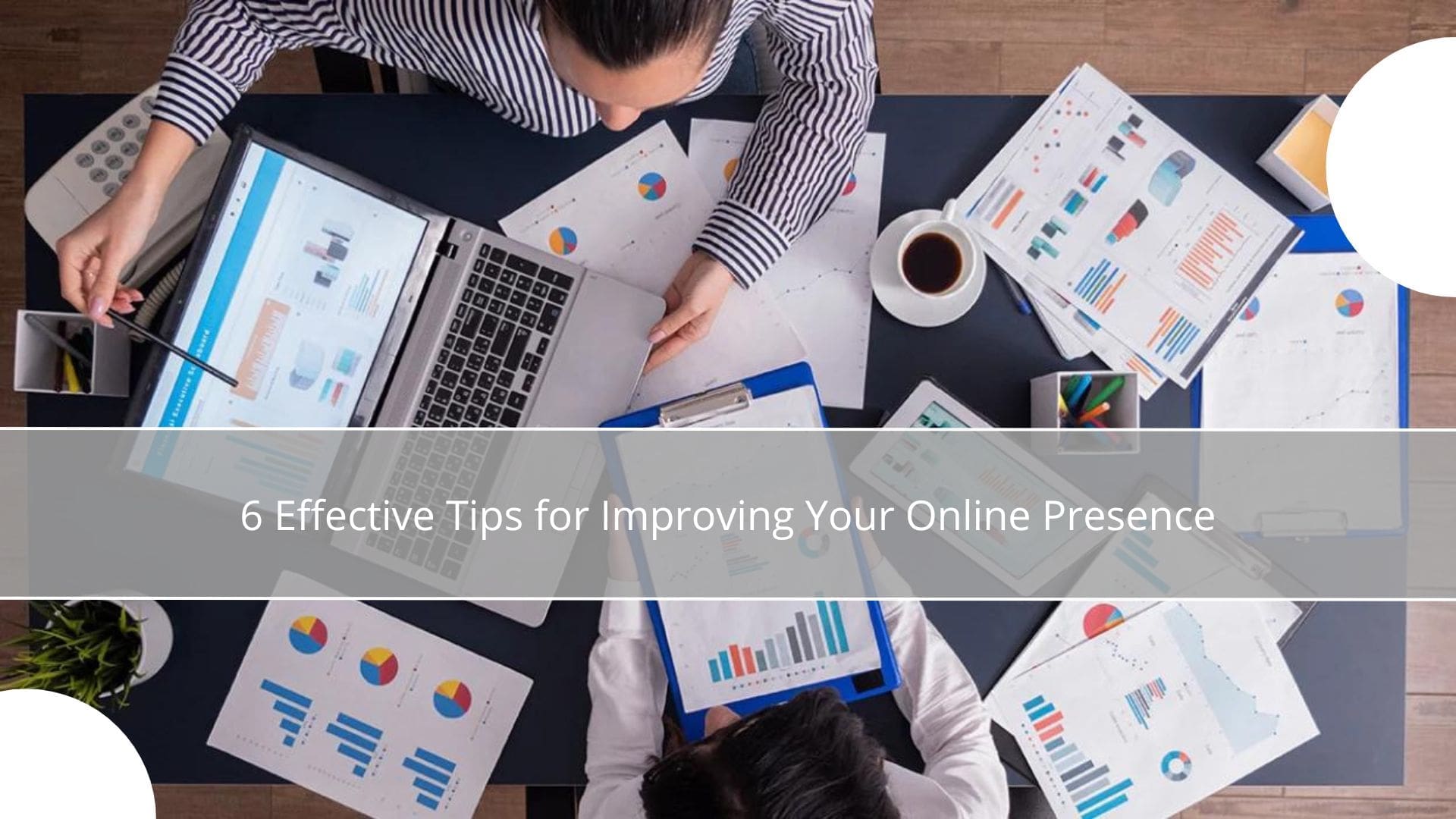
In today’s digital world, having a strong online presence is crucial for the success of any business. A well-established online presence helps businesses reach a wider audience, increase brand awareness, and drive sales. In this article, we will cover six effective tips for improving your online presence, including defining your target audience, optimizing your website for SEO, leveraging social media platforms, creating valuable and relevant content, monitoring your online reputation, and using paid advertising strategically.
Understanding your target audience is essential for creating an effective online presence. By defining your target audience, you can better tailor your marketing efforts and create more relevant content that resonates with your audience.
To define your target audience, consider factors like demographics, interests, needs, and pain points. You can gather this information through surveys, Google Analytics, and social media insights. The SMB Hub also offers tools and services to help you identify your target audience and develop a strategic marketing plan.
Search engine optimization (SEO) is the process of improving your website’s visibility on search engines like Google. By optimizing your website for SEO, you can increase your search rankings, drive organic traffic to your site, and ultimately grow your online presence.
Some best practices for on-page SEO include using relevant keywords, creating compelling meta titles and descriptions, and optimizing your images. Additionally, don’t forget the importance of mobile optimization – ensuring your website is responsive and user-friendly on mobile devices is crucial for keeping users engaged and improving your search rankings.
To help with SEO optimization, consider using tools like Moz, Ahrefs, or SEMrush. You can also explore The SMB Hub’s SEO services for expert assistance.
Social media platforms are an excellent way to build your online presence and engage with your target audience. Some popular platforms to consider include Facebook, Instagram, Twitter, LinkedIn, and Pinterest.
When posting on social media, focus on sharing a variety of content types, such as images, videos, infographics, and articles. Engage with your audience by responding to comments, asking questions, and sharing user-generated content. For more tips on social media success, check out our 7 Steps for Social Media Success in Small Business article.
To help you manage and schedule your social media posts, consider using tools like Buffer, Hootsuite, or Sprout Social.
Creating high-quality, relevant content is essential for improving your online presence. Not only does valuable content help to establish your brand as an industry authority, but it also improves your SEO and keeps users engaged.
Develop a content strategy that focuses on your target audience’s needs and interests, and be consistent in publishing new content. Best practices for content creation include using a mix of content formats, incorporating visuals, and creating engaging headlines.
To assist with content creation, consider using tools like Grammarly, Hemingway Editor, or Canva. The SMB Hub’s content marketing services can also help you develop and implement a successful content strategy.
Managing your online reputation is crucial for maintaining a positive brand image and attracting new customers. Regularly monitor your online presence by tracking reviews, mentions, and social media comments.
Be proactive in addressing negative feedback by responding promptly and professionally. Use these interactions as an opportunity to demonstrate your commitment to customer satisfaction and showcase your brand’s values.
Tools like Google Alerts, Mention, and ReviewTrackers can help you monitor your online reputation and stay on top of your brand’s image.
Paid advertising, such as Google Ads or social media advertising, is an effective way to improve your online presence quickly. By using paid advertising strategically, you can target specific audience segments, increase brand visibility, and drive website traffic.
To determine which ad platform is best for your business, consider factors like your target audience, advertising goals, and budget. When creating ad campaigns, focus on using compelling visuals, relevant keywords, and strong calls-to-action to encourage user engagement.
Tools like Google Ads, Facebook Ads Manager, and Twitter Ads can help you create and manage your paid advertising campaigns. You can also explore The SMB Hub’s marketing services for expert guidance on developing an effective advertising strategy.
Improving your online presence is essential for the success of any business. By defining your target audience, optimizing your website for SEO, leveraging social media platforms, creating valuable and relevant content, monitoring your online reputation, and using paid advertising strategically, you can boost your visibility and effectively grow your business online. Implement these six tips, and you’ll be well on your way to building a strong, impactful online presence.
Can I implement these tips myself or should I hire a professional?
You can certainly implement these tips yourself, but if you need expert guidance, consider hiring a professional or utilizing The SMB Hub’s services.
What are some effective call-to-actions for my website?
Effective call-to-actions include “Learn More,” “Sign Up,” “Contact Us,” or “Buy Now.” Choose a call-to-action that aligns with your website’s goals and encourages users to take action.
How can I measure the impact of my online presence?
You can measure the impact of your online presence by tracking metrics like website traffic, social media engagement, conversion rates, and search engine rankings.
How often should I post on social media?
The ideal posting frequency varies by platform and audience. As a general rule, aim for at least 3-5 times per week on platforms like Facebook and Instagram, and daily for Twitter.
Is it better to focus on one social platform or have a presence on multiple platforms?
It’s generally better to have a presence on multiple platforms to reach a wider audience. However, focus on the platforms most relevant to your target audience and where you can consistently produce high-quality content.
Can I remove negative reviews from my online presence?
It’s generally not possible to remove negative reviews unless they violate the platform’s terms of service. Instead, focus on addressing the feedback and demonstrating your commitment to customer satisfaction.
You must be logged in to post a comment.
